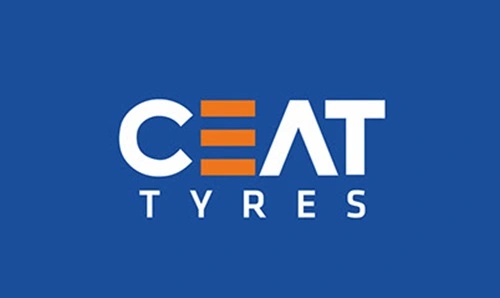CEAT Tyres, a leading tyre manufacturer headquartered in Mumbai, India, is a flagship company of the RPG Group. Since its inception in 1958, CEAT has grown into one of the top tyre brands in India and across the globe, with a strong presence in over 100 countries. The company produces a wide range of tyres for various segments, including two-wheelers, passenger cars, commercial vehicles, and off-road applications. As CEAT enters 2024, it faces a dynamic market environment shaped by technological advancements, changing consumer preferences, and intense competition.

Current Overview of CEAT Tyres:
CEAT continues to strengthen its position in both domestic and international markets, capitalizing on India’s growing automotive sector. CEAT’s product portfolio includes highly popular tyre brands like Milaze, Zoom, Gripp, and Czar, which have become household names due to their durability and performance. The company is also making strides in eco-friendly tyre technology and digital solutions to enhance customer engagement. Recent financial reports show steady growth, driven by strong domestic demand and a focus on operational efficiency. However, CEAT faces challenges, including competition from global players and fluctuating raw material costs.
Strengths:
1. Strong Brand Presence: CEAT is one of the most recognized tyre brands in India with high brand recall. Over the years, it has built a reputation for offering high-quality, durable products across multiple segments, from two-wheelers to heavy-duty commercial vehicles.
2. Large Product Portfolio: CEAT has a diverse product range, catering to different markets and customer needs. Its presence in the passenger car, two-wheeler, and specialty tyre segments allows it to serve a wide range of consumers.
3. Focus on Innovation and R&D: CEAT has invested heavily in research and development, producing innovations such as tubeless tyres and products optimized for electric vehicles (EVs). This focus on innovation helps the company stay competitive in a rapidly changing market.
4. Extensive Distribution Network: CEAT’s well-established distribution network across India, with over 3,500 dealers, allows it to efficiently reach customers in urban and rural areas alike. The company’s focus on after-sales service also boosts customer satisfaction.
Weaknesses:
1. Limited Global Market Leadership: Despite exporting to over 100 countries, CEAT is not a market leader in any international segment. The company’s global presence remains overshadowed by international giants like Michelin, Bridgestone, and Goodyear.
2. High Dependence on Raw Materials: CEAT is highly dependent on raw materials like rubber, steel, and chemicals, which are subject to price fluctuations. This dependency increases costs and can negatively impact profitability when raw material prices rise.
3. Focused on Too Many Segments: The company’s focus on multiple segments at once has spread its resources thin. As a result, CEAT struggles to dominate any one segment fully, limiting its competitive edge in an increasingly saturated market.
Opportunities:
1. Growth of the Indian Automotive Sector: India’s automobile industry is expected to grow significantly in the coming years, particularly in the passenger car and two-wheeler segments. CEAT can leverage this growth by expanding its product offerings and strengthening its OEM relationships.
2. Innovation in Electric Vehicle (EV) Tyres: The rise of electric vehicles presents a huge opportunity for CEAT to develop specialized tyres that cater to the unique needs of EVs, such as low rolling resistance and longer durability. The company has already begun focusing on this area and could position itself as a leader in EV tyres.
3. Expansion into International Markets: CEAT has the opportunity to expand its global footprint by focusing on high-growth regions like Southeast Asia, Latin America, and Africa. Strengthening its presence in these markets could help diversify revenue streams and reduce dependence on India.
4. Online Sales and Digital Transformation: With the growing trend of online retailing, CEAT has an opportunity to enhance its e-commerce platform and engage more effectively with consumers. Offering a wider range of products through digital channels can help the company capture new customer segments.
Threats:
1. Intense Competition: CEAT faces stiff competition from both domestic players like Apollo Tyres and JK Tyres, and international brands like Michelin, Bridgestone, and Goodyear. This intense competition often results in price wars, which can erode CEAT’s market share and margins.
2. Volatility in Raw Material Prices: Fluctuations in the prices of key raw materials such as rubber, carbon black, and steel pose a significant threat to the company’s profitability. Managing these costs while maintaining competitive pricing is a continual challenge.
3. Government Regulations and Environmental Policies: Stricter regulations related to emissions, safety, and the use of eco-friendly materials can increase production costs. CEAT will need to invest in sustainable practices to meet these regulations without compromising its profitability.
4. Disruption from Technological Advancements: Rapid advancements in tyre technology, particularly from global players, could disrupt CEAT’s market position. To stay competitive, CEAT must continuously innovate and invest in R&D.
CEAT Tyres Future Plans:
Looking forward, CEAT aims to increase its focus on sustainability and innovation. The company plans to introduce more eco-friendly tyres, especially for electric vehicles, and improve its digital capabilities to enhance customer experience. CEAT is also investing in expanding its manufacturing capacity to meet growing demand, particularly in the two-wheeler and passenger car segments. Moreover, international expansion remains a priority as the company seeks to strengthen its presence in high-potential markets outside India.
Conclusion:
CEAT Tyres remains a significant player in the Indian and global tyre markets, known for its innovation, diverse product offerings, and strong brand presence. However, challenges such as intense competition, reliance on raw materials, and limited global leadership threaten its growth. By focusing on emerging opportunities like the electric vehicle market and online retail, along with strategic international expansion, CEAT can continue its upward trajectory in the years to come. To succeed, it will need to invest heavily in R&D, operational efficiency, and sustainability.